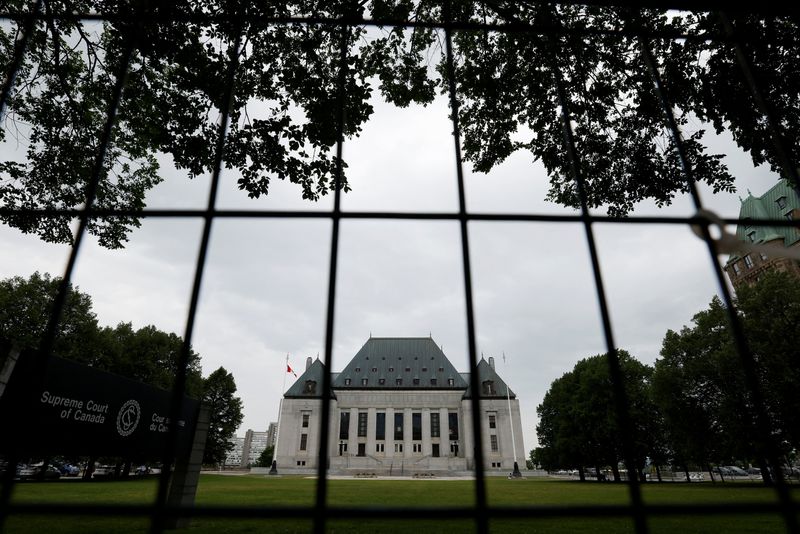Canadian Supreme Court sides against First Nations woman in sentencing case
2022.11.04 10:02
[ad_1]

© Reuters. Fencing has been put up around the Supreme Court of Canada ahead of Canada Day celebration activities and anti-mandate protests in Ottawa, Ontario, Canada June 29, 2022. REUTERS/Blair Gable
By Anna Mehler Paperny and Ismail Shakil
TORONTO (Reuters) – A split Canadian Supreme Court on Friday ruled limits on conditional sentences are constitutional, a setback for advocates of indigenous rights who argued the provisions discriminate against indigenous people, who are overrepresented in the country’s prisons.
Lawyers for Cheyenne Sharma, a First Nations woman, did not demonstrate that provisions limiting her eligibility for a conditional sentence “created or contributed to a disproportionate impact on Indigenous offenders” and the restrictions are in line with government objectives, the majority wrote.
Sharma challenged the constitutionality of legal provisions making her ineligible for a conditional sentence after she pleaded guilty to importing cocaine. The then-20-year-old single mother, fearing eviction from her home, had imported nearly 2 kilograms for C$20,000.
A 2012 law prevents judges from giving defendants conditional sentences for certain offences. Ontario’s Court of Appeal found these provisions violated Sharma’s rights to life, liberty and security of the person and to equal treatment under the law.
Indigenous people, especially indigenous women, account for a disproportionate part of Canada’s prison population, according to Canada’s Correctional Investigator.
Indigenous women make up half the women in Canada’s prisons and 65% of the imprisoned women classified as maximum security despite comprising less than 5% of the country’s female population.
Conditional sentences, served in the community under close supervision and strict rules, are supposed to help address this disparity.
The Canadian government appealed the Court of Appeal’s ruling, arguing it would effectively prevent the government from “enacting or amending the criminal law – unless it is to make it more lenient.” The government argued that limiting the availability of a penal sanction does not perpetuate the historic disadvantage facing indigenous offenders.
But the same government also brought forward legislation, now before the Senate, that would have the same effect on the impugned provisions.
Lawyers told Reuters a victory for Sharma and her allies could have opened the door to future cases arguing that even ostensibly neutral laws can have discriminatory impacts that make them unconstitutional.
[ad_2]
Source link








